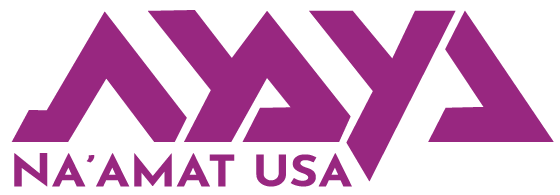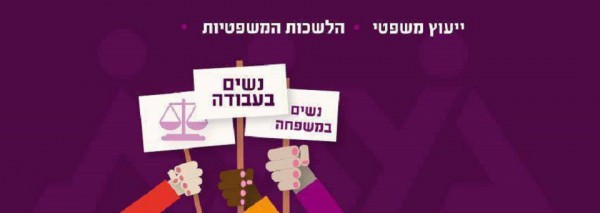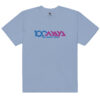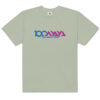Developing the Future Leaders of NA’AMAT
Orly Bitty is a board member of NA’AMAT Israel and oversees the organization’s multicultural and young generation programs.
A lawyer specializing in labor law and collective agreements, she is a lifelong political activist and a long-time member of Israel’s Labor Party. She describes herself as “a lawyer by profession, but a politician by addiction.” Currently, she leads a program to teach leadership skills to young women.
Recently, Orly Bitty spoke with NA’AMAT USA about her work with the organization and her commitment to women’s issues.
NA’AMAT USA: You have been an activist for your entire adult life, what issues are important to you?
Orly Bitty: I am interested mainly in three issues. The first is peace. For many years, I have been involved in the Peace Now Movement and the Labor Party. I am also anxious to promote a shared society of Arabs and Jews. Peace and a shared society go together.
Secondly, I work to promote unionism, collective agreements, workers’ rights and equality in the workplace. Third, I am interested in feminism and women’s issues. Of course feminism is part of the first two points.
NA’AMAT USA: Tell us about some of the issues you have been involved in in the past.
ORLY BITTY: In the mid-80s, there was a racist party in Israel, Kach, led by Meir Kahane. His campaign and party was stopped in Givatayim, the city where I live. At that time, I was very active in local politics. I met with some friends and colleagues and we decided that we would not let him speak in our city. In a day and a half we organized a demonstration of 3,000 people shouting and whistling and we did not let him speak. But Kahane insisted. He got a license to hold a demonstration a month later. We responded by organizing another demonstration that attracted 15,000 people and it led to legislation that prevented Kahane from being a candidate in the next election.
People often don’t appreciate the power of individual action. There were only ten people in our group, and initially eight of them were against the demonstration. So, we were only two, but we exhausted them with our arguments and it resulted in a change to the election law.
A few years later, I was part of the young leadership of the Labor Party and I realized that women were under-represented at all levels including in the Knesset. I pushed the Labor Party to adopt the Norwegian quota system. It took ten years, but today one-third of Labor Party members in the Knesset are women. I know that I have a part, “a share,” in this course and I feel very satisfied as well as proud.

NA’AMAT USA: How did you come to be elected to the board of NA’AMAT?
ORLY BITTY: I was working as a private lawyer and someone came to me seeking a legal opinion on an issue related to NA’AMAT. Before the next election, I was approached because I was involved with NA’AMAT public struggles for many years. And then I was elected to the board. It was absolute chance.
NA’AMAT USA: What made you launch a program for young women within the organization?
ORLY BITTY: When I was a candidate for the first time, I checked the numbers and found that 25 percent of NA’AMAT members were young women, but at the elected level, only four percent were young women. Only one board member was under 50.
NA’AMAT USA: What kind of program do you run?
ORLY BITTY: It’s a leadership training program. Young women who complete the program are encouraged to remain active in the organization, to establish groups in their local communities and to initiate projects.
Young women involved in the program take part in group discussions where they explore issues important to them. These issues vary based on their age and personal experience, but each year the group chooses one issue to focus on. Last year, it was bullying in the workplace.
The issue of bullying was rarely dealt with in Israel. We worked with MK Merav Michaeli who was pursuing a proposal related to bullying and she made changes to it that we initiated. We are very proud of that. The largest trade union in Israel was previously unaware that bullying is an issue. Now it is. We are proud of that as well.
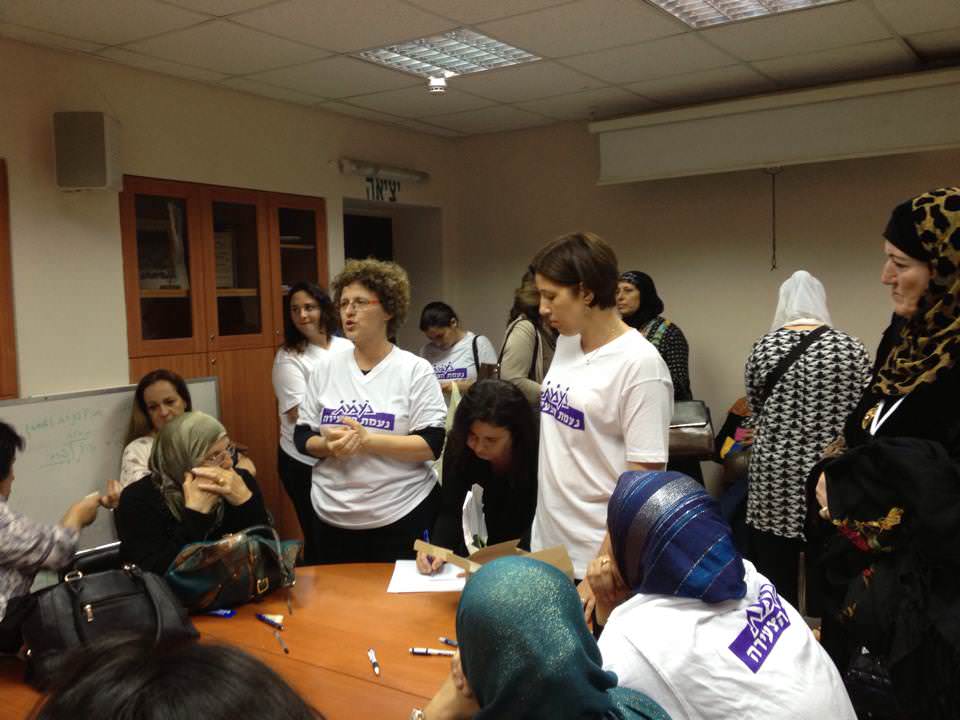
NA’AMAT USA: Is bullying in the workplace a particular problem for women?
ORLY BITTY: According to statistics, 60 percent of the victims of bullying are women—but 40 percent are men! Victims are mainly young. Young people are new on the job and occupy the lowest rung on the ladder, so they are more vulnerable.
Bullying is only one example. Three years ago, we focused on the issue of work/life balance. This year, we are planning a campaign on the barriers young people face in finding employment. They lack experience. Our campaign has an ironic theme, “Wanted, workers with no experience.”
NA’AMAT USA: How many women are involved in your program?
ORLY BITTY: Every year, there are 20 women in our leadership program and usually 60 in the regional level and student programs. This year, there will be 80. Overall, in the last 10 years over 1,000 young women were involved in this unique project.
NA’AMAT USA: Are they all Jews?
ORLY BITTY: Jews and Arabs. I make an effort to involve Muslims, Christians, Jews…everyone. I include people who are new to the country, from Russia, Ethiopia, the USA and elsewhere. I’m not yet satisfied with the results, but at least we are making a strong effort.
NA’AMAT USA: What are your plans for the future?
ORLY BITTY: I am working on a few programs, such as the program I already mentioned with ultra-Orthodox young women, encouraging them to demand their rights, building regional coexistence clubs, creating a program with midwives, and developing care and service that is multi-cultural sensitive.
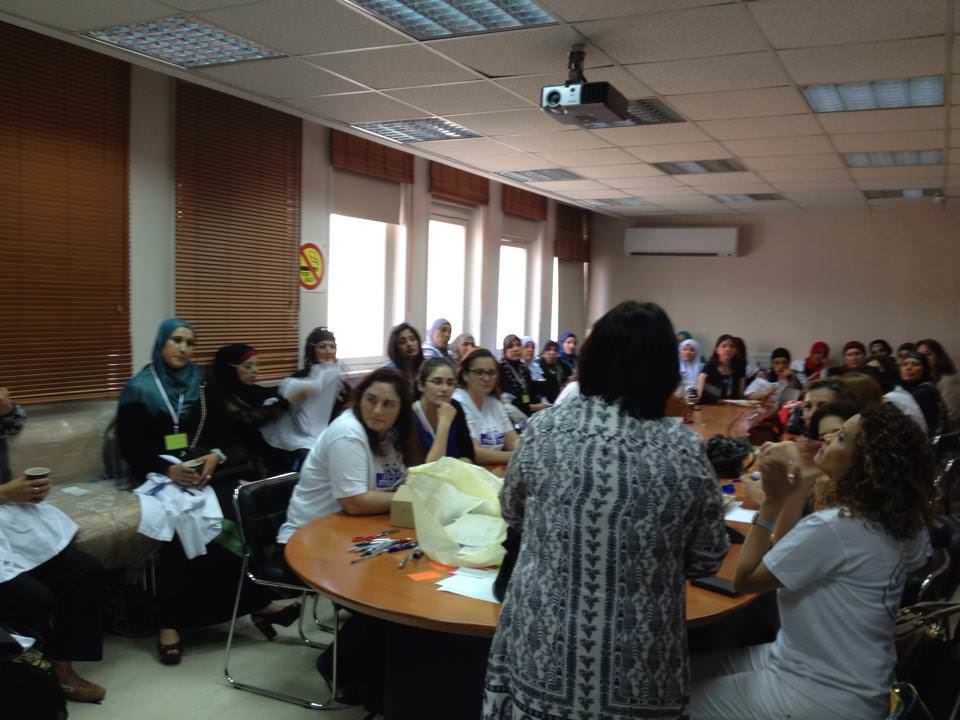
Unfortunately, as our sisters abroad know, NA’AMAT’’s resources are limited and most are designated to very important services, such as day care centers and technological high schools. Therefore, I have to fund-raise and look for resources in different foundations. I have many planned programs, but I need to find the financial resources to carry them out.
NA’AMAT USA: What would you like members of NA’AMAT USA to know about your experience in working with young women in Israel?
ORLY BITTY: The younger generation can be recruited to NA’AMAT. I think we have to be inclusive. Young women are looking for a home and they will come to NA’AMAT if we are very clear about our goals and values. My way of feminism is to affect policy. That is also the NA’AMAT way. I am very proud of our heritage and I am trying to educate younger women about that heritage. It is a challenge, but I believe we can succeed.
